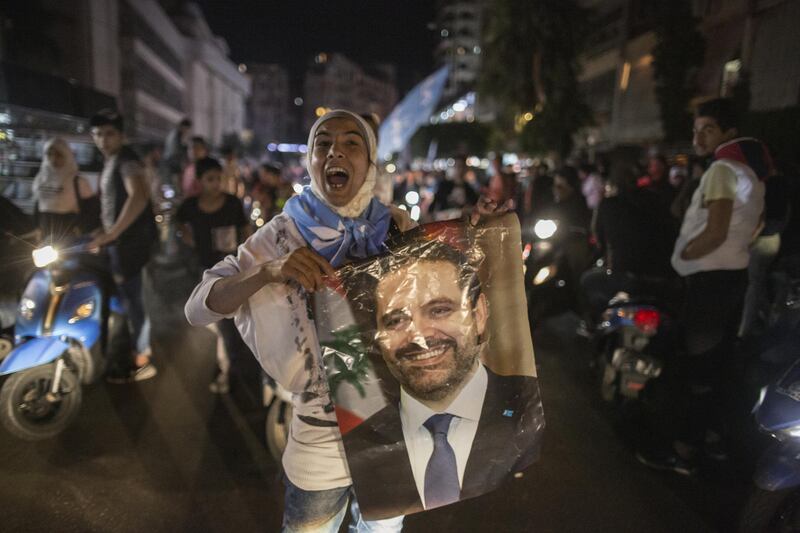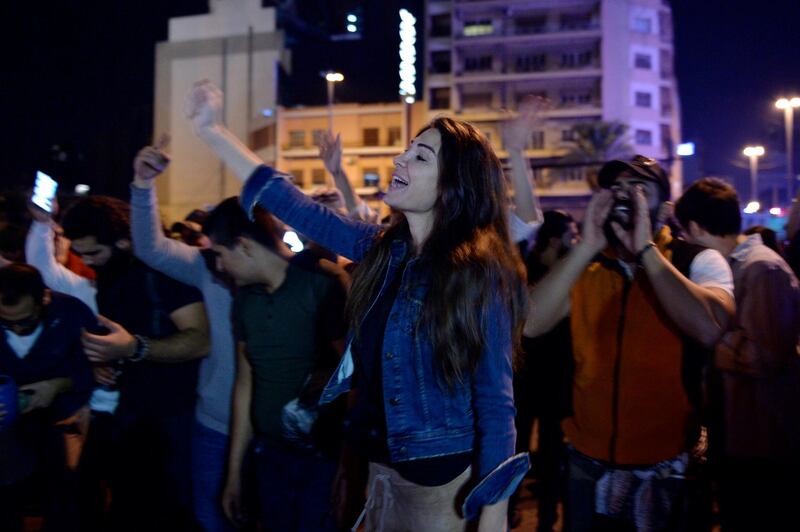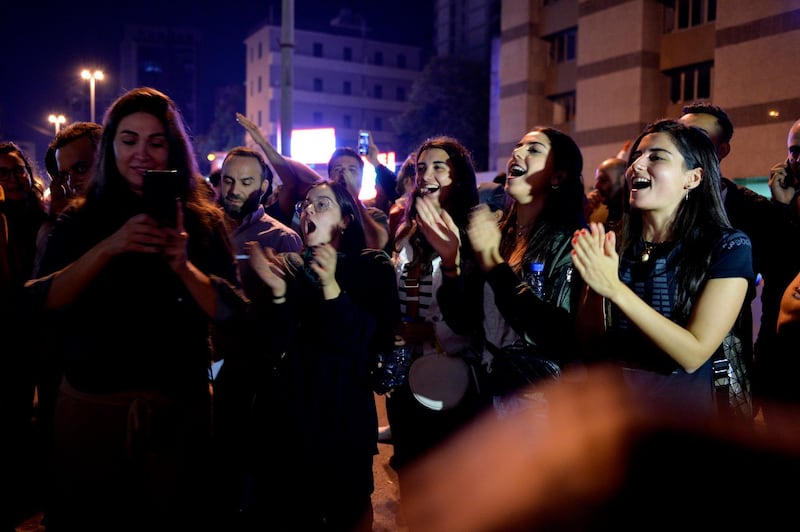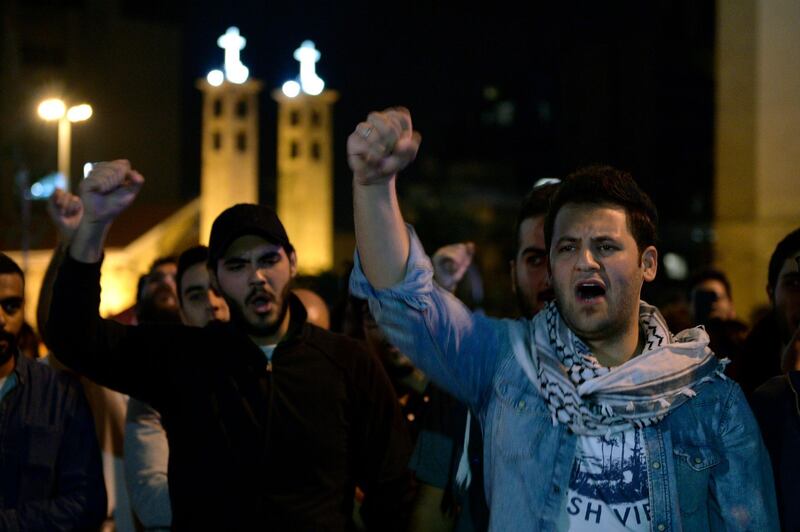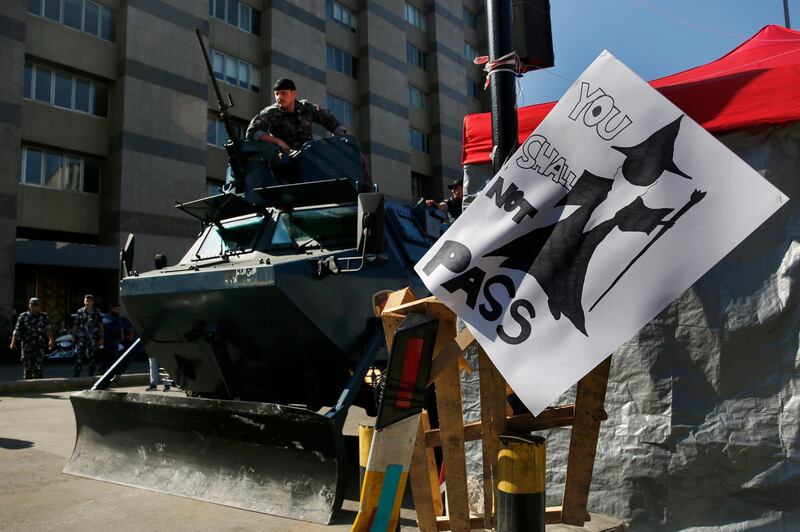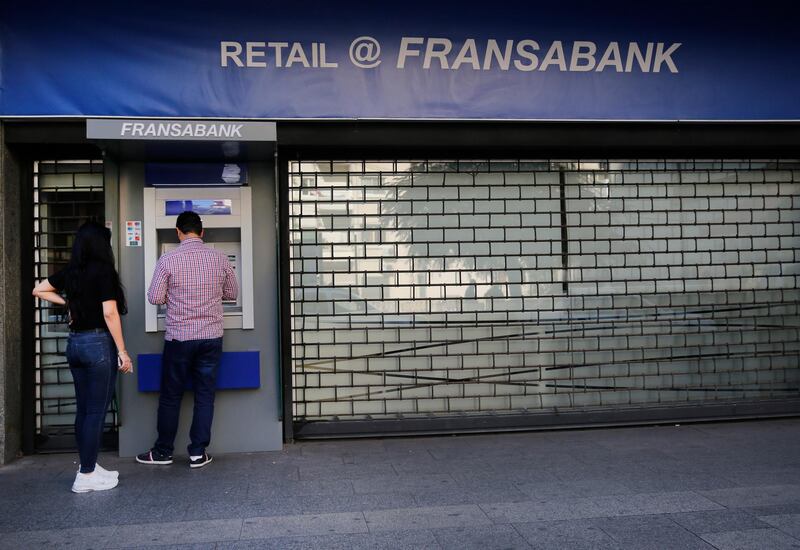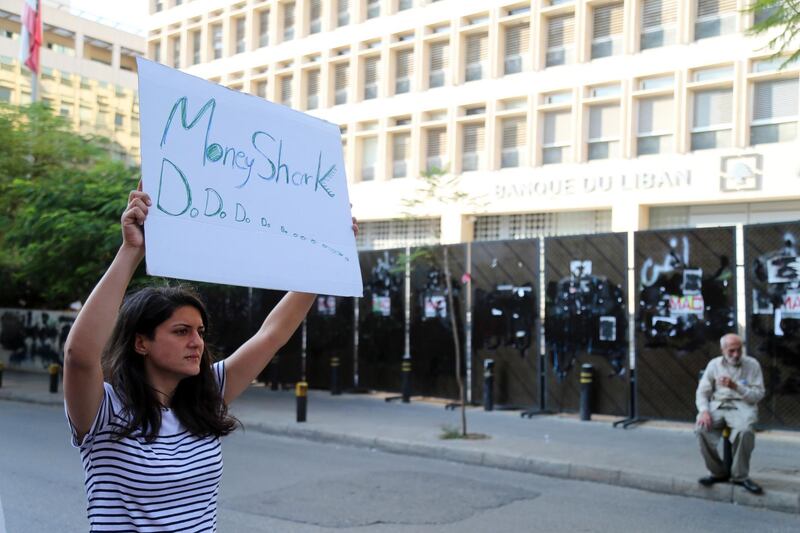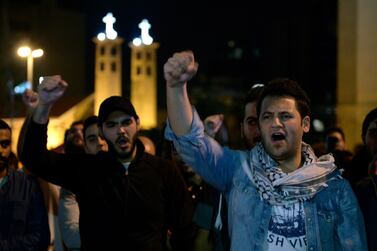The resignation of Prime Minister Saad Hariri this week came despite the Iran-backed Hezbollah's insistence that there would be no change in leadership.
At a meeting before his announcement, Hezbollah officials tried frantically to persuade Mr Hariri, who was once one of their most staunch opponents, to stay on.
At 8 pm on Monday, Mr Hariri and Hezbollah political advisers sat down at his Beit Al Wasat residence in central Beirut. But the conversation did not last long.
"I have made my decision," Mr Hariri told Hussein Al Khalil, adviser to Hezbollah leader Hassan Nasrallah, according to a source.
"I want to resign to make a positive shock and give the protests some of what they want."
Mr Al Khalil sought to change his mind: "These protests are nearly over, breathing their last breaths," he told Mr Hariri. "We are next to you, steel yourself."
But he stuck by his decision, made after two weeks of mass nationwide protests demanding the government resign.
Mr Hariri complained that he was not getting the support he needed to carry out a major Cabinet reshuffle that might have defused anger on the streets and allowed reforms to be implemented.
"I can no longer bear it and I am not getting any help," he said.
The main sticking point, Mr Hariri said, was Hezbollah's Christian ally, Foreign Minister Gebran Bassil, son-in-law of President Michel Aoun.
He has clashed repeatedly with Mr Bassil since his Cabinet was formed in January.
The minister is widely regarded as having grand ambitions to take the next presidency.
Mr Hariri sought a major reshuffle that would remove Mr Bassil, the subject of much anger on the streets, and others.
But the minister and Mr Aoun resisted any reshuffle, saying demonstrators might not leave the streets and demand even more concessions.
"You, Hezbollah, are standing behind Gebran and supporting him," Mr Hariri told Mr Al Khalil.
Mr Bassil could not be reached for comment.
After announcing his resignation, Mr Hariri expressed relief but he may return as prime minister-designate and try to form a new government of technocrats.
It is unclear if Mr Aoun, Mr Bassil or Hezbollah have changed their stance, paving the way for a major standoff and political deadlock.
The resignation is a major blow for Hezbollah, which is more deeply involved than ever in the Lebanese government and keen to avert deeper financial problems that could lead to a currency crisis.
For years Hezbollah kept local politics at arm's length, allowing the leader of their allied Amal Movement, Parliament Speaker Nabih Berri, to take the lead.
This gave it separation from internal tension that regularly paralyses the country and shielded it from accusations that it was using its powerful arsenal to dictate local affairs.
But in the current administration it took a third Cabinet seat – the largest share it has had since first entering the Lebanese government in 2005.
Mr Nasrallah twice said he was against Mr Hariri's resignation, suggesting some of the protesters were financed by the group's foreign adversaries.
The post of prime minister must be filled by a Sunni Muslim in Lebanon's sectarian system, and while Hezbollah has Sunni allies, Mr Hariri was regarded as critical to solving the crisis because of his international backing.
"This is a strong blow to Hezbollah. Its hands have now been tied," a source said. "The biggest winner is Hariri."
Mr Hariri entered this Cabinet, his third, with the balance of power tilted against him and in favour of Hezbollah.
Although the alliances are not as reliable as they once were and other competing factors have played heavily in recent years, Hezbollah and its allies, including Mr Aoun and Mr Bassil, won more than 70 of Parliament's 128 seats in a 2018 election.
Mr Hariri lost more than one third of his seats in that election, including some to Sunnis aligned with Hezbollah.
This was because of a new electoral law, his inflated number of MPs after the last election, in 2009, and his waning fortunes.
Hezbollah allies, including the Free Patriotic Movement of Mr Bassil and Mr Aoun, secured most Cabinet seats.
Mr Hariri clashed with Mr Bassil, who had been an ally up to that point, particularly over long-elusive reforms needed to plug gaping holes in the state finances.
Hezbollah forged its alliance with the movement in 2006, winning an influential Christian friend as politics was recast by the withdrawal of Syrian government forces, which dominated the country since the end of the 1975-90 civil war.
As Foreign Minister, Mr Bassil has consistently spoken in international forums such as the Arab League to defend Hezbollah and its possession of weapons.
In line with Hezbollah's view, Mr Bassil at a meeting this month called for Syria to be allowed back into the Arab League, generating more friction with Mr Hariri because it was at odds with Lebanese government policy.
Hezbollah had refrained from attacking Mr Hariri over his decision to quit because of the possibility that he could become prime minister of a new coalition Cabinet, a source said.
Hezbollah "must preserve a way back" from the crisis, he said.
